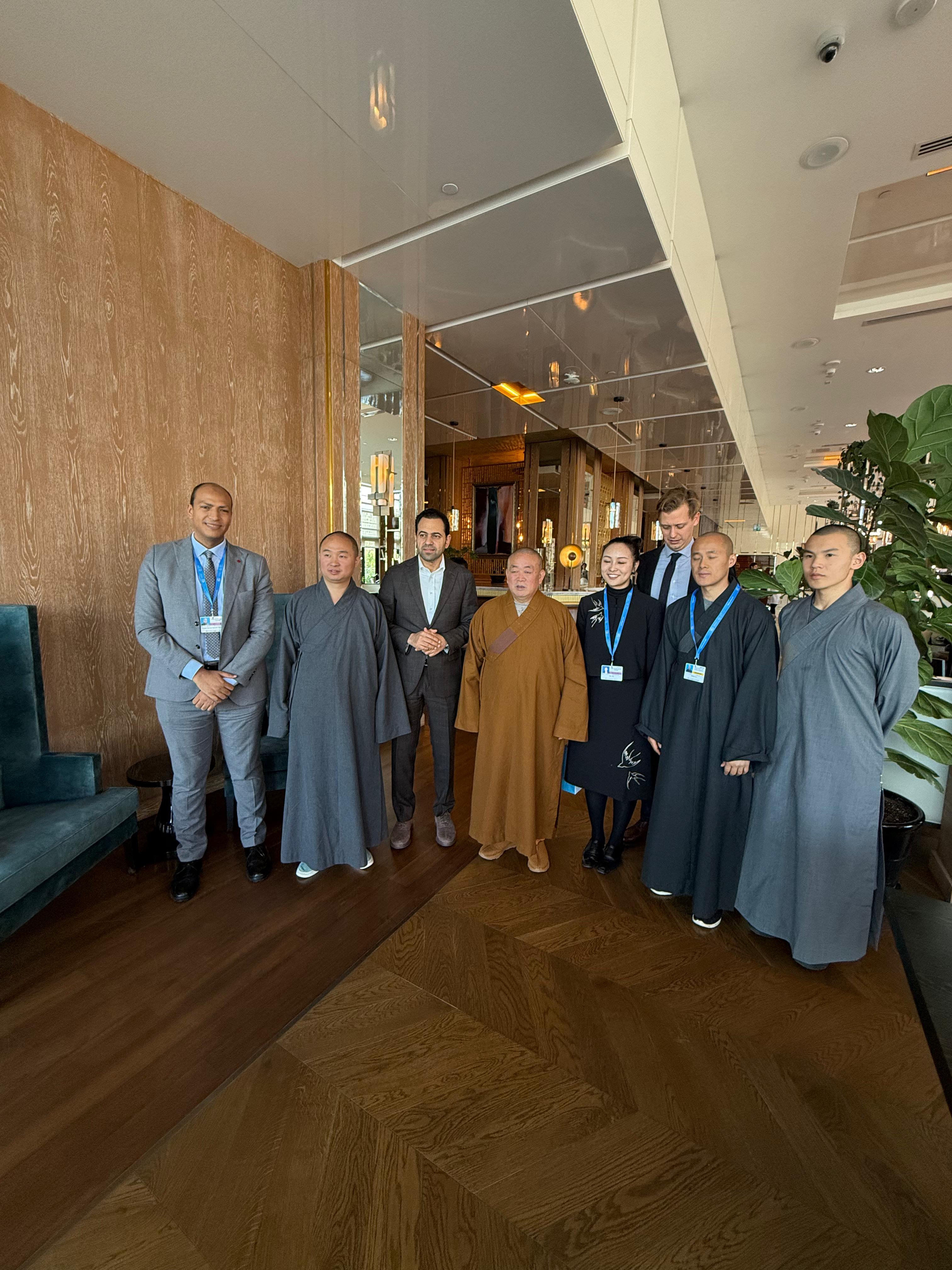Secretary-General of the Muslim Council of Elders meets with the CEO of the Shaolin Monastery and emphasizes the importance of the voice of religions in advancing climate action
CEO of the Shaolin Monastery praises Faith Pavilion as a global platform for dialogue and engaging religious leaders in addressing the climate challenge
Muslim Council of Elders and the Shaolin Monastery discuss ways to strengthen mutual cooperation
The Secretary-General of the Muslim Council of Elders, Judge Mohamed Abdelsalam, met with Shi Yongxin, CEO of the Shaolin Monastery, on the sidelines of COP29 in Baku, Azerbaijan. The discussion centered on the importance of uniting the efforts of religious leaders to address global challenges, with climate change being a primary focus.
During the meeting, Judge Abdelsalam emphasized the significant role religions can play in driving impactful global change. He highlighted their ability to guide millions of individuals toward sustainable and responsible behaviors to protect Earth, humanity’s shared home. He noted that the Faith Pavilion at COP29 reflects the commitment of the Muslim Council of Elders, led by His Eminence Dr. Ahmed Al-Tayeb, Grand Imam of Al-Azhar, to amplifying the collective voice of religions in protecting the environment and its natural resources.
Shi Yongxin praised the historic 'Document on Human Fraternity', which was co-signed in Abu Dhabi in 2019 by His Eminence Dr. Ahmed Al-Tayeb and His Holiness Pope Francis. He also commended the Faith Pavilion initiative launched at COP28 in Dubai, describing it as a global platform for interfaith and intercultural dialogue and a practical step in involving religious leaders in climate change efforts. Shi Yongxin emphasized that the Pavilion embodies a message of peace and unity among religions to protect the planet.
The Faith Pavilion at COP29, running from November 12 to 22, features over 40 discussion sessions with the participation of 97 organizations representing 11 religions. It aims to build on the success of its inaugural edition at COP28 by strengthening interfaith collaboration for environmental protection, exploring best practices for sustainable adaptation, promoting sustainable lifestyles, and addressing the non-economic impacts of climate change alongside mechanisms for climate justice.

